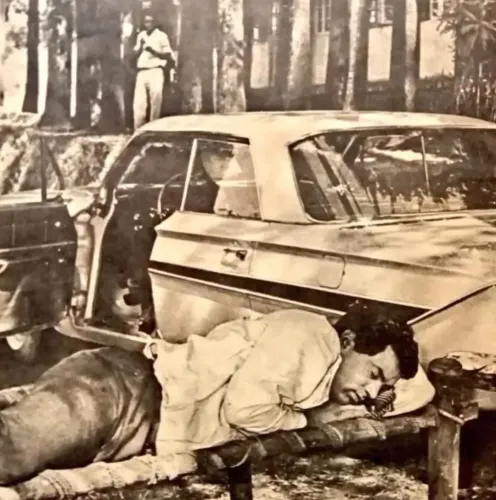What Does the Holy Status Mean for the Golden Temple Area, Talwandi Sabo, and Anandpur Sahib?

Synopsis
Key Takeaways
- Holy status granted to Talwandi Sabo and Anandpur Sahib.
- Prohibition of meat, liquor, tobacco, and intoxicants.
- The move reflects a long-standing demand from citizens.
- Formation of an interfaith committee for religious institutions.
- Government plans for tourism promotion and city development.
Anandpur Sahib, Nov 24 (NationPress) In a groundbreaking move, the Punjab Vidhan Sabha has unanimously granted holy city status to Talwandi Sabo and Anandpur Sahib, as well as the Golden Temple region in Amritsar.
Consequently, the sale and consumption of meat, liquor, tobacco, and other intoxicants will be strictly banned in these cities and specific areas of Amritsar.
Chief Minister Bhagwant Mann announced this after a special session of the legislative assembly, emphasizing that the push for holy city status has been a longstanding demand of the citizens.
Mann highlighted that there are five Takhts (sikhism's seats of authority), with three located in these cities: Harmandir Sahib in Amritsar, Damdama Sahib in Talwandi Sabo, and Takht Sri Kesgarh Sahib in Anandpur Sahib.
Accompanied by AAP national Convener Arvind Kejriwal, Mann stated that this special session was part of events commemorating the 350th martyrdom anniversary of Guru Tegh Bahadur, which took place on the sacred grounds of Anandpur Sahib.
They emphasized that the revered Sikh Gurus have always advocated for the principle of Sarbat da Bhala, which signifies the welfare of all. The martyrdom of Guru Tegh Bahadur was a profound sacrifice in the defense of human rights. Guru Sahib personally acquired the land to establish Anandpur Sahib, which was later home to his son, Guru Gobind Singh, for nearly three decades.
It was on this holy land that Guru Gobind Singh founded the Khalsa Panth to combat tyranny and protect justice. Additionally, three of Guru Gobind Singh's four sons were born here, making their sacrifices legendary.
Considering the long-desired demand from the public, the government declared these cities as holy cities of Punjab to mark this session of the Punjab Legislative Assembly in history.
Mann described these cities not only as religious hubs but also as symbols of our civilizational heritage. He affirmed that this initiative transcends political affiliations, communities, or religions, and is crucial for the preservation and global promotion of cultural heritage.
During the assembly session, the resolution was presented by the Chief Minister and unanimously approved. He also announced the formation of an interfaith committee representing all religious institutions in these holy cities.
Mann assured that the government would dedicate resources for the development, cleanliness, security, and promotion of religious tourism in these cities, while also seeking financial support from the Central government to ensure the legacy of these towns endures for future generations.
In honor of Guru Tegh Bahadur, the government has arranged a series of commemorative events statewide for the 350th martyrdom year. Mann reiterated that today’s session was part of these observances and highlighted the unparalleled sacrifice of Guru Tegh Bahadur aimed at safeguarding the religions of others.









